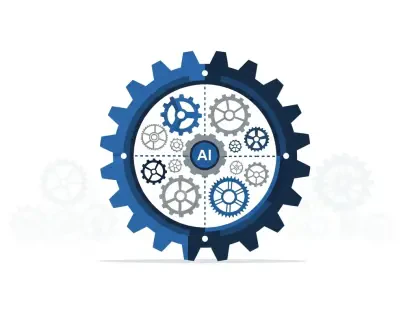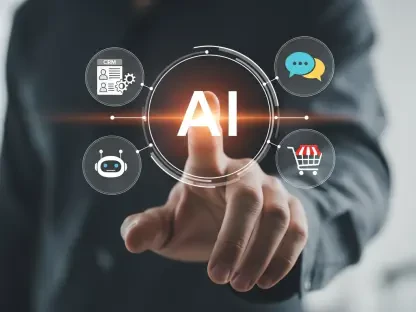Artificial intelligence (AI) has emerged as a transformative force across various sectors, and the retail industry is no exception. Retailers are exploring innovative ways to leverage AI to enhance customer experience, streamline operations, and gain a competitive edge. Rather than a one-size-fits-all approach, deploying AI to address specific challenges appears to be the key to unlocking its full potential. By focusing on targeted problems, retailers can capitalize on incremental wins, ultimately leading to more significant improvements in efficiency, cost savings, and customer satisfaction. As we delve into how AI can transform the retail industry at the edge, let’s consider some prominent areas where this technology is making a significant impact.
Optimizing Self-Checkout Systems
One of the notable challenges in the retail sector is the self-checkout conundrum that many retailers face. While consumers have increasingly shown a preference for self-checkout options, concerns around shrinkage—items leaving the store without being paid for—can pose risks to the bottom line. Some retailers have even considered scaling back these offerings due to these risks. However, modern AI-driven applications offer a viable solution to enhance the accuracy and security of self-checkout systems. Machine learning (ML) and computer vision technologies are pivotal here; they can detect suspicious behaviors, verify scanned items against visual input, and introduce real-time safeguards against theft and human error.
The application of AI in self-checkout terminals goes beyond merely preventing shrinkage. It also facilitates a smoother, more user-friendly experience for shoppers. For instance, AI can guide customers through the scanning process, flagging unscanned items or incorrect pricing instantaneously. This proactive approach not only alleviates potential losses for the retailer but also builds consumer trust and satisfaction. As these AI systems learn and adapt from accumulated data, their predictive capabilities improve, making the self-checkout process faster and more efficient over time. By meeting the demand for self-service while safeguarding inventory, AI strikes a balance that satisfies both consumer preferences and business needs.
Enhancing Customer Experience
In today’s competitive retail landscape, customer expectations have evolved dramatically. Shoppers now seek personalized experiences, access to a broad range of products, and seamless interactions across different channels—whether in-store or online. AI technologies such as generative AI (GenAI), natural language processing (NLP), and computer vision play a crucial role in meeting these expectations. GenAI can generate personalized recommendations based on individual shopping behaviors and preferences, elevating the overall customer experience. NLP facilitates sophisticated chatbots and virtual assistants capable of handling a wide array of customer inquiries with remarkable efficiency, offering real-time assistance that feels both personal and immediate.
Moreover, AI-driven computer vision systems have the capability to alert store staff about stockouts or merchandising opportunities, ensuring that shelves are optimally stocked and products are displayed attractively. Furthermore, intelligent automation can map store operations to enhance efficiency. For example, by analyzing foot traffic patterns and purchase data, AI helps retailers to optimize store layouts, predict consumer trends, and allocate resources more effectively. This level of operational insight not only improves the shopping experience but also enhances store performance by driving sales and customer loyalty. In essence, AI equips retailers with the tools to offer an unparalleled shopping experience customized to each consumer’s unique needs.
Supporting Retail Operations and Staffing
The integration of AI into retail operations extends to streamlining back-end processes and supporting staff in their roles. AI-driven computer vision can notify employees of long checkout lines, low inventory levels, or misplaced items, enabling swift and efficient resolution of these issues. This technology acts as an additional layer of operational intelligence that augments human capabilities, allowing employees to focus on more complex tasks that require critical thinking and customer interaction. In essence, AI assists in creating a connected, scalable, and secure retail environment where staff can perform their duties more effectively.
Additionally, automation powered by AI can handle intricate tasks such as managing SKUs, data analysis, and maintaining infrastructure. By automating these processes, retailers gain enhanced visibility into their operations, reducing the likelihood of errors and optimizing inventory management. This integration leads to more streamlined tasks and reduced operational costs. With AI taking care of routine and repetitive jobs, employees can be redeployed to areas where human ingenuity and customer service are paramount. This not only boosts productivity but also improves job satisfaction, as staff members can focus on delivering exceptional service and engaging more directly with customers.
Implementing Flexible AI Solutions
Artificial intelligence (AI) has become a game changer across several sectors, and the retail industry is definitely experiencing this shift. Retailers are actively exploring creative methods to employ AI in a bid to elevate customer experiences, optimize operations, and secure a competitive edge. Instead of relying on a universal strategy, it has been noted that applying AI to specific issues is crucial for unlocking its full capabilities. By zeroing in on particular challenges, retailers can achieve small, incremental victories that cumulatively result in substantial gains in efficiency, cost reduction, and enhanced customer satisfaction.
As we explore the transformative potential of AI in the retail landscape, it’s essential to identify key areas where this technology is making a noteworthy difference. From intelligent inventory management and personalized marketing to predictive analytics and streamlined supply chains, AI is driving significant innovation and improvements. By integrating AI, retailers not only improve their operational workflow but also deliver a more tailored shopping experience that meets and exceeds customer expectations.









